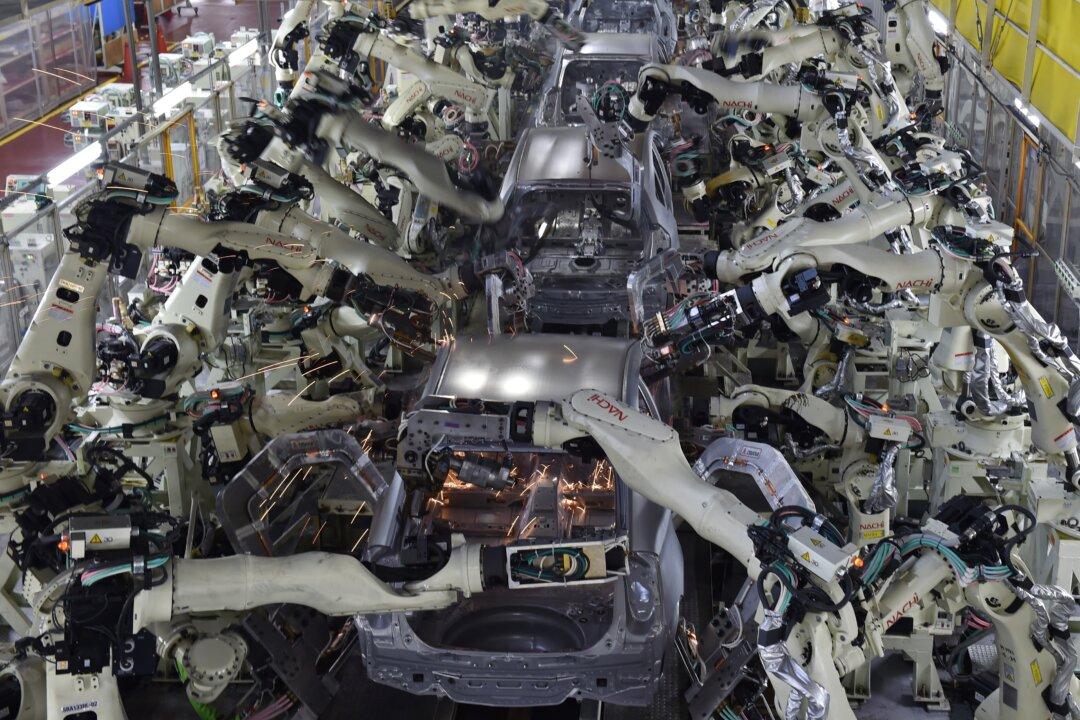Japan’s core private-sector machinery orders grew by 3.8 percent in October, marking the first increase in three months as the country’s economy continues to recover from the pandemic.
Core machinery orders, which disregard those for ships and from electric power companies due to volatility, came to 870.8 billion yen ($7.67 billion) in October, according to the Cabinet Office data released on Monday.





